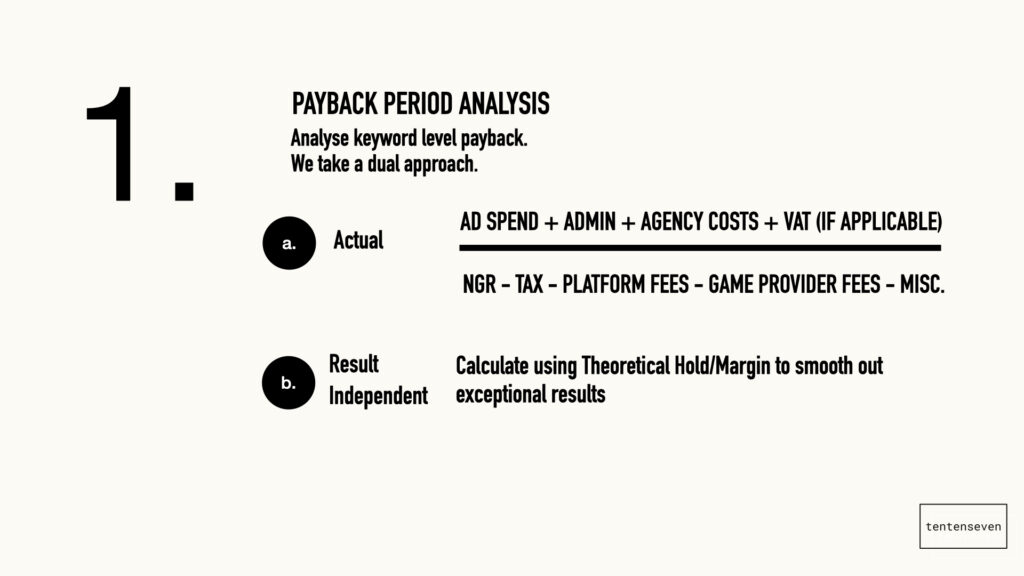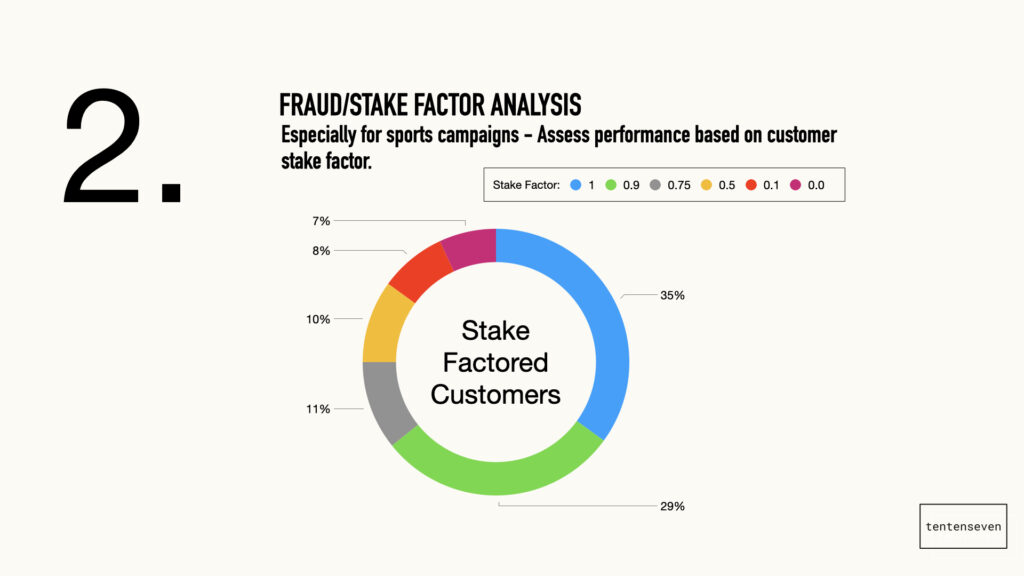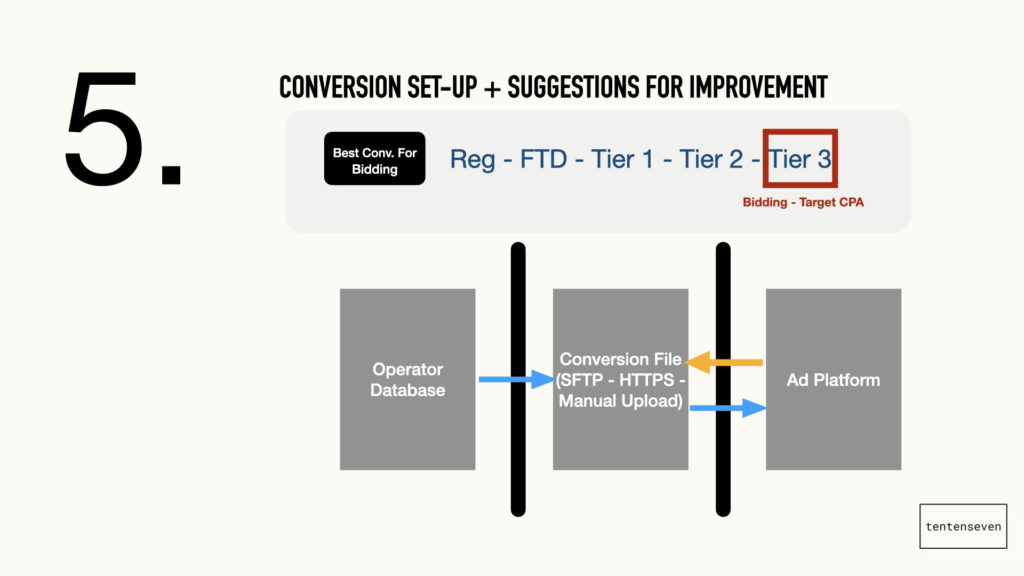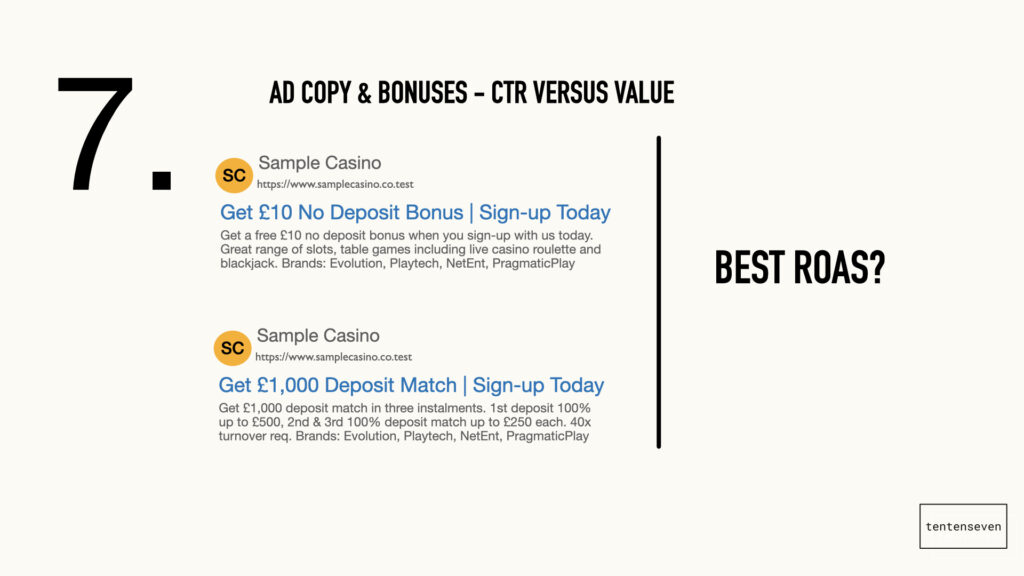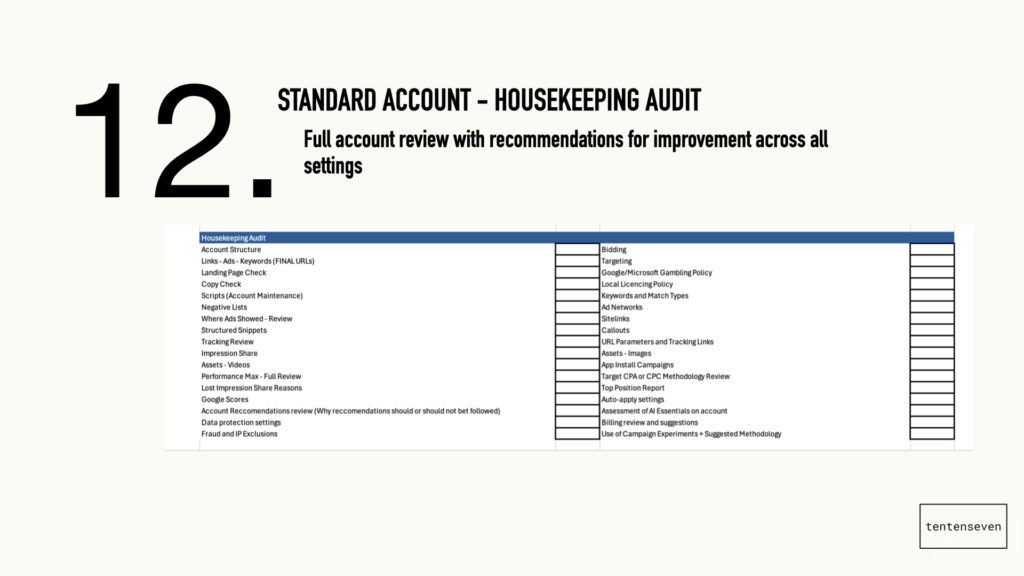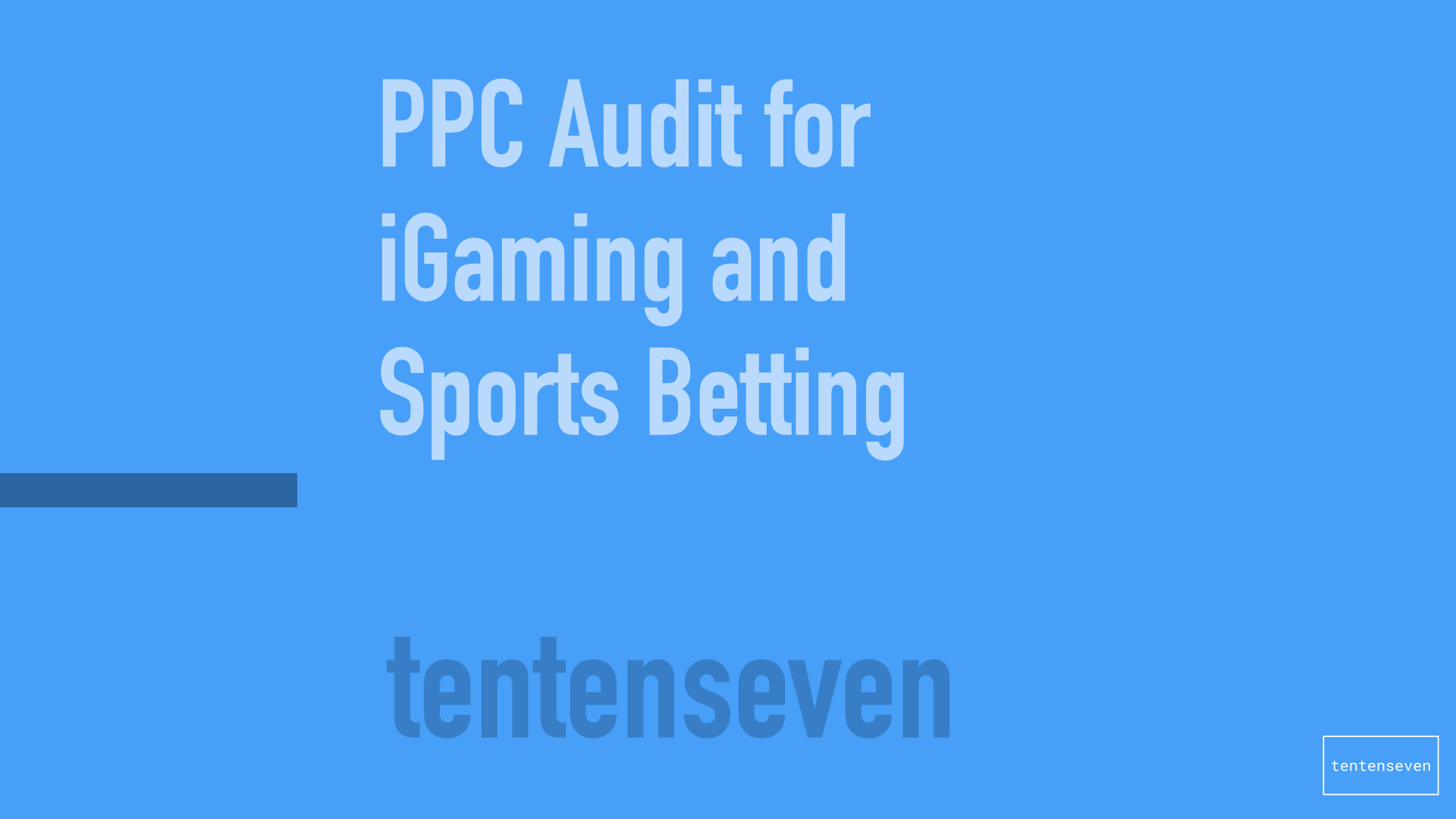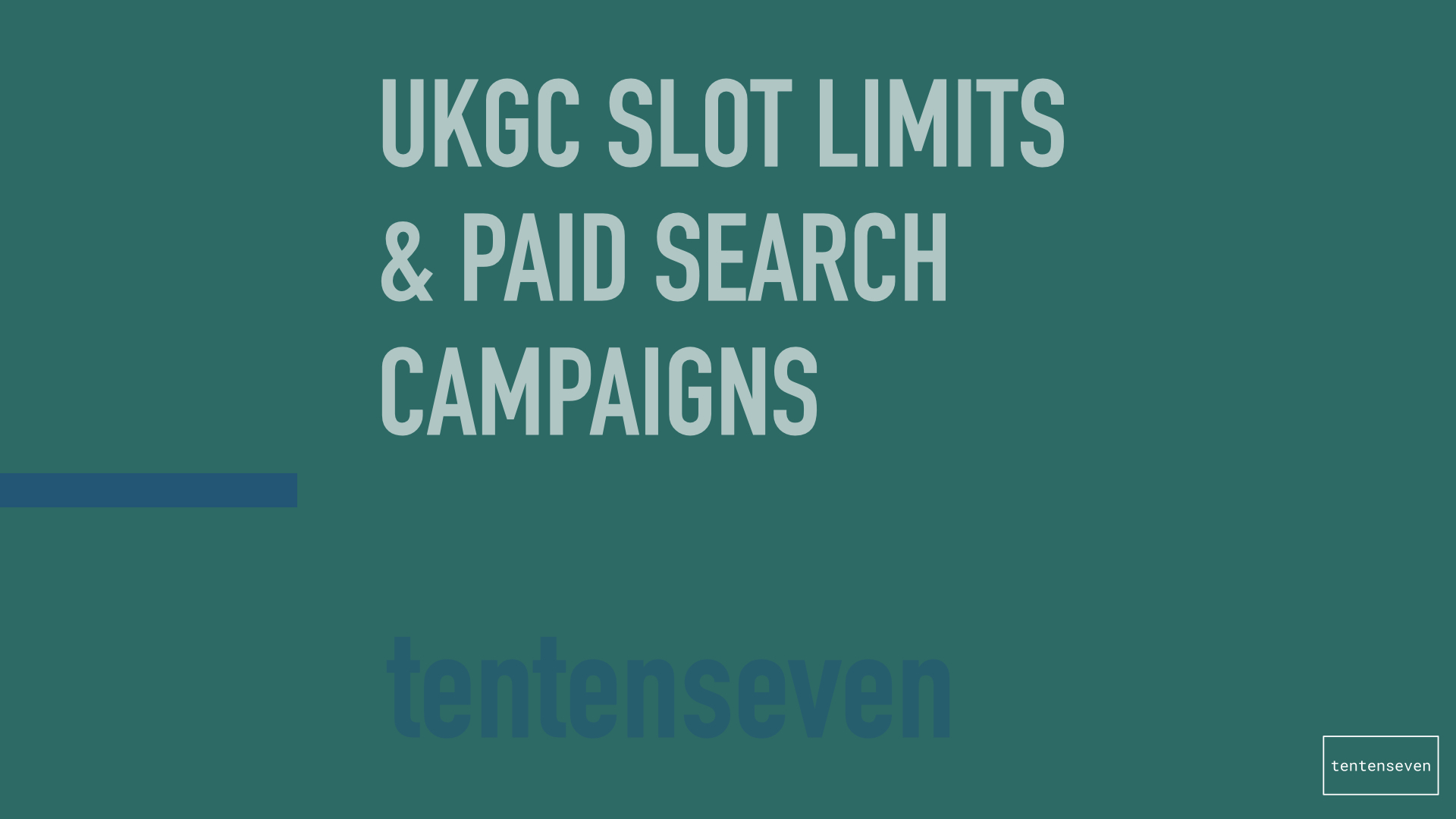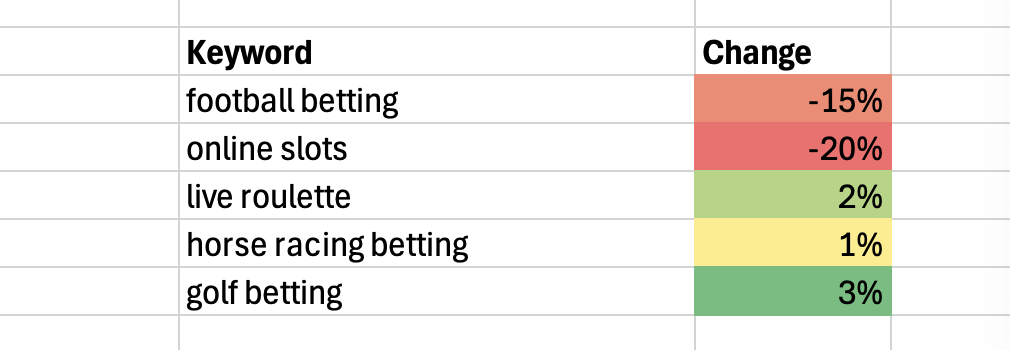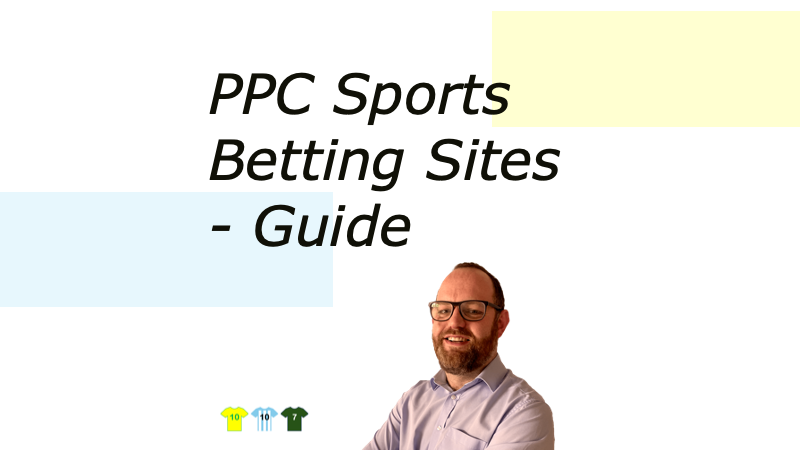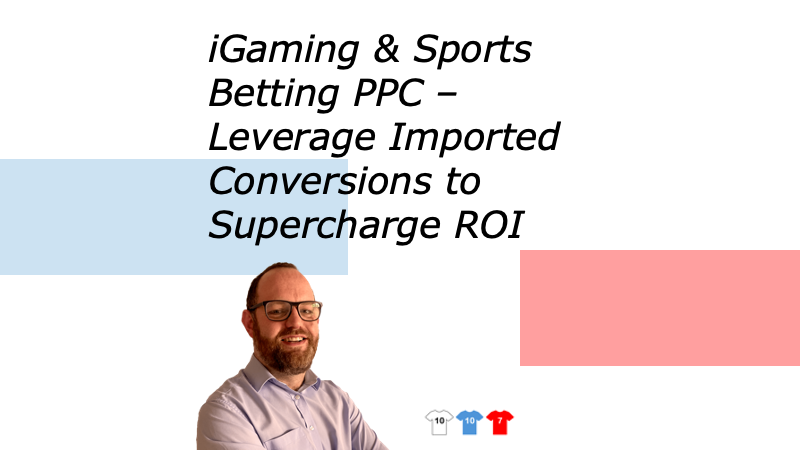PPC Sports Betting Sites: Overview
Paid Search is a major part of the marketing mix of most online bookmakers. It is the cornerstone of many online gaming sites’ marketing strategy.
Many C level executives love it because you don’t have to buy multiple placements in advance. You can turn it on and off as you please. However, there is a worrying trend, the cost per click keeps increasing year on year especially on the keywords that deliver the best return.
Increasing CPC – Customer Knowledge is Key
It is not uncommon to pay over £60 per click for a top sportsbook keyword and over £120 for a top casino term.
When done correctly PPC delivers good quality customers that add to the overall value of the company. There are different approaches that can be taken depending on the company size, years in existence, retention marketing performance and Above The Line (ATL) activity.
Internal Reports and Processes Make the Difference
As time goes by, Paid Search for online gaming becomes more and more complicated. In the Gaming sector, a successful paid search campaign depends on many interlinking parts, many of which sit outside the paid search team and in some cases outside of the marketing department altogether.
As Google bidding becomes more automated, the internal analysis and business process become increasingly important to paid search.
1): Get your fundamentals in order
It is essential that you have accurate Customer Lifetime Value (CLV) figures across all products for the top head terms. You can’t effectively manage PPC without this.
For Sportsbook PPC accounts it is essential that you include casino revenue from sportsbook acquisitions in your CLV calculations.
PPC Sports Betting Sites – Points to Consider:
Percentage of self-excludes
Bonus abuse
Margin
Device performance (margin) trends
VIP category
Cross product interaction
2): New Versus Returning
In many gambling marketing departments, the Retention and Acquisition teams sit separately. Budgets are divided along rigid lines and both teams have little or no interaction.
This might make it easier for the HR department to manage, but it doesn’t reflect the complexities of today’s customer journey.
Retention versus Acquisition
Ask yourself this question.
Is your PPC Brand Campaigns an Acquisition or Retention channel?
Now, check Google Analytics and (I hope you have ecommerce set up – If not we can help you).
Surprised?
Unlike many other sectors, the gambling sector has been left at a serious disadvantage by Google. Restrictions on RLSA mean that techniques and audience segmentation that are fundamental to paid search strategies in other industries are not available.
As per Google’s gambling policy. We can’t use business data ad customizer to craft different offers for new and existing customers. We can’t bid modify returning customers down on expensive generic terms. We can’t use Google Analytics behaviours to create unique customer segments and manage bids accordingly. We can’t create similar audiences based on user behaviour and VIP level.
So how can you control this when you don’t have any control?
In general, your Brand, Competitors and Generic campaigns will have different functions. Your Ad Copy and offers should reflect this.
For example, if you only want new customers include “New Customers Only” in your ad copy. Be prepared to sacrifice CTR for conversion rate. There are quality score implications for this.
3) One generic CPA target doesn’t work
Having one generic CPA target for all campaigns doesn’t work. Typically the overall CPA is too low to get the best quality customers who typically come through core head terms (remember we should be factoring in revenue from all products).
You should set CPA targets for keyword clusters. Keep an eye on cross sell to online casino and other products while watching bonus abuse.
A good way to view this is the difference in intent between a customer searching for “online betting” and one searching for “free bet.”
Which one do you think will have the higher lifetime value? Pretty obvious huh.
4) To Brand or not to Brand? That is the question
Many C-level executives ask this question. It can induce a sense of paranoia about spending budget unnecessarily. The same C-Level executives then spend money on sponsorships and partnerships without the same rigorous analysis.
PPC Betting Sites: Always Advertise on Brand
This is known as the “Google Tax” and if you don’t want your customers being wooed by your competitors who are offering them free bets or boosted odds, you should maintain position one on your brand. Also, traffic that previously came through those £60+ generic head terms often revisits the site through a brand search to sign up.
Don’t Allow Your Competitors to Steal Your Customers
All in all, by not ranking position one for your brand term on the paid search listing you will haemorrhage customers. Your brand will take a hit in the eyes of your customers. It doesn’t give that VIP who wants to deposit a quarter of a million pounds this month any confidence in your brand if you are being outmuscled out of position one on your own brand term.
Our advice is to advertise on your brand terms. Owning page one of SERPs for your brand term is essential, being active on Paid search particularly on mobile is key to achieving “above the fold” dominance for your brand and push competitors down the listings.
5) Returning Customers – Click a Sitelink
On Brand terms, the main headline may be geared towards new customers. Some operators will include a sitelink for existing customers that brings them to the homepage and not a landing page.
This is good practice from a UX perspective. However, it is not as simple as that.
If you are only working towards acquisition KPIs you will be wasting budget and increasing your Brand CPA by attracting clicks from current customers.
6) Cheltenham
You can get payback on ad spend when you specifically target Cheltenham but expect it to be over at least 24 months. Generally poor quality customers.
My advice – allocate more budget towards regular day to day horse racing campaigns. Don’t get caught up in the rat race Cheltenham week.
Remember the Champions League fixtures that week. Don’t be afraid to push budgets in the evening.
7) Grand National
Pause all campaigns until after the race on Saturday (best advice on this article). Oh and remove your standard sign-up offer across the site until after the race.
The Grand National attracts punters who bet once a year. It is an exceptional event and rarely delivers in terms of new customer acquisitions. Most of the new customers who sign-up on the day of the Grand National will bet a fiver or less on the race then never bet again. Needless to say, these are not the type of customers you want to acquire at typical PPC CPAs
8) Premier League Saturdays
Now we are talking. This is the ideal time for aggressive bid modifiers.
During National Hunt season you have both Channel 4 racing and the Premier League. You will get good quality customers if your mobile site/app is up to scratch.
Is Your Betting Site up to Scratch?
This is where PPC can build a decent customer base. However, your product both sportsbook and casino must at least match the industry standard. If you have a better offering than the industry standard you will do very well.
9) Ad Customizers for Online Betting – [The Feature Has Changed For Responsive Search Ads]
For online sports betting and casino sites, ad customizers are essential. You should be using them. It does mean changing how you manage offers and ad copy but in the long run it is worth it.
With welcome offers changing and different price boosts every weekend changes to ad copy on gambling accounts is inevitable. Editing text the standard way removes the previous ad and it’s associated performance data and replaces it with a fresh ad.
*Please note the information on ad customizer files is outdated. They have changed with responsive search ads. See more about the updated ad customizers for responsive search ads here: https://support.google.com/google-ads/answer/10711524?hl=en
Using ad customizers enables you to keep the original ad and all its data and just change dynamically the ad copy according to your ad customizer file in the business data section of your account.
Therefore it is important for two reasons. 1) Keep data in one place. 2) Maintain quality score of ads.
Information on Ad Customizers
How to Use Ad Customizers
Conclusion: PPC Sports Betting Sites
Essentially the success of PPC in the online betting space comes down to the product quality and backend data just as much as PPC account management.
It is important that the PPC team works in line with both the customer retention and the above the line teams to deliver a consistent message with the objective of increasing revenue.
Let your first-party data to the talking. Don’t listen to the Cheltenham hawks in your office. Invest budget based on what is giving you the best return.
Don’t fear the Sportsbook CPA. With healthy revenues from cross-selling to other products, a seemingly high Sportsbook CPA can actually represent the best ROAS.
We haven’t touched on UX and conversion optimisation which are major factors, especially on mobile devices. Don’t worry we will cover these in a later article. The core message is to get the product in line and PPC revenue will follow.
If you would like to discuss PPC for Sports Betting or Marketing for betting/gaming let us know.
